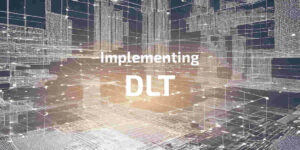
Ever wondered the extent to which blockchain technology can change our world? The technology is now being integrated into various industries ranging from healthcare to real estate and more. In this article, we will unveil the advantages of blockchain in these industries and other sectors today.
Before we begin the deep dive into the blockchain benefits per industry, let us take a look at the broader advantages of tech is brandishing today.
Key advantages of blockchain technology
The advantages of blockchain technology, as well as its benefits, are many. Blockchain integration into many industries and companies has stirred a seismic shift in the way data is secured, and work is done in general. Through blockchain, key areas that bring organizational challenges are now being solved with ease.
The blockchain advantages any particular company or organization records may differ based on their business models, as well as the business processes they are notably overhauling. In this section, we will discuss some of the top advantages of blockchain technology, as applicable both in industries, and government agencies alike.
To be ahead of the competition you can learn blockchain at the iMi Academy.

Unlock Your Business Potential with Certified Blockchain Consulting!
Dive into the future of technology with our team of certified blockchain experts. Simply pick the service you need:
Personalized Advice – tailored to your business needs.
Comprehensive Training – for you and your team.
Development Services – innovative solutions from the whitepaper to the finished blockchain.
Programming – with capabilities and tools to succeed.
TALK TO THE EXPERTS TODAY1. Enhanced security
Blockchain technology brandishes superior technology in securing the entries or data stored in its digital ledger. Every blockchain platform employs a consensus model which guides the entry or registration of data on the ledgers. Data cannot just be appended onto the block at will, and as such, no one can manipulate or squeeze any entry in without the consensus. Once the data is filled into each block, they are enclosed with encryption, making accessibility possible only through a hashing method.
The decentralization model or nature of blockchain technology, in which each computer or node in the network owns a copy of the transactions recorded is also a basis for enhanced security. For any malicious actor to gain access, such an actor must gain access to at least 51% of the network, going by most blockchain networks, to be able to effect a major attack on blockchain applications. This is not feasible in a typical real-world scenario.
As the number of node operators increases, the security of the network is further enhanced.
2. Decentralization
Blockchain technology is an ideal example of a decentralized network system at work. The network or hardware resources that power the blockchain ecosystem is owned by every node operator who also shares the data that is generated to be stored in the system. Decentralization is one key way to bring trust in a digital ecosystem where trust is hard to come by.
The world has been plagued by the inefficiencies of a centralized model of running data systems in financial services, healthcare, and other key areas. Centralizing data points predisposes the system to a low fault tolerance as well as opening it up to a single point of failure. All of these are not inherent in a decentralized blockchain system.
There are many direct and unique advantages decentralization brings to an entity and this includes but not limited to reducing the points of weakness in the network, and resource distribution optimization. In reality, concentrating network maintenance and governance in a centralized server can lead to the exhaustion of resources and manpower, ultimately leading to inefficient and slow services. It is hard for all parties in a decentralized system to experience worn-out systems at the same time. Each individual node is managed independently and the possibility of uniform collapse is low.
3. Traceability
Another major benefit blockchain technology offers is the traceability of goods in a supply chain business. Blockchain can be used to build a supply chain system that will directly benefit producers or suppliers and vendors or product consumers. Blockchain traceability systems help to wade off the challenges prevalent in the traditional systems which involve the difficulty in fishing out counterfeit goods, pilfering, audit trail, and other such problems.
4. Transparency
Achieving transparency by many governments and organizations has been attempted in various ways over the years. Some places a system of trust in individuals, perhaps at the management level in an organization to oversee transactions. However, humans can be fraught with corruption, and this system has proven not to yield many results over time.
While Legal laws have also not helped, rules and regulations established in organizations have not also proven to work in maintaining transparent transactional processes. This leaves stakeholders to begin exploring emerging technologies for their merits. Here is where blockchain technology comes to life. Registering data or the record-keeping of transactions on open-source distributed ledgers, such as hyperledger, managed by peers brings transparency.
Peers may conduct the transactions and double as the validator of the transactions for storage on the blockchain. All of the inherent features of a decentralized network particularly the safekeeping of encrypted transactions on each node also contributes to the transparency of the entire system.
5. Speed and Efficiency
Over the past few decades, there has been a gradual evolution and transformation in digital workflows. From the manual recording of data before the advent of digital systems, the world experienced a remarkable shift towards automation. More than before, technological advances have always sought to replace the more time-consuming processes with more efficient systems, and Blockchain technology is the right candidate for this use case.
The automation of transactions helps remove human-based errors while the transaction confirmation speed in real-time by all participants in the network helps improve the overall efficiency of the system. Those that have carried out a transaction or two (such as cross-border funds transfer) using such blockchain solutions as found in digital currencies can attest to how fast it is in settling such transactions compared to what is on offer by financial institutions and fintech platforms.
As often reiterated, blockchain technology does not only find expression in digital assets or cryptocurrencies like Bitcoin, Ethereum, and other altcoins. Every system that utilizes blockchain equally benefits from its inherent speed and efficiency.
6. Reduced costs (no intermediaries)
The absence of intermediaries or middlemen helps to lower the cost of transactions in many business systems or financial transactions. To put it in the right perspective, the presence of middlemen in a particular transaction comes with paying for the services of such an actor. Blockchain technology lets consumers interact directly with one another, thus making the roles of intermediaries such as Google, Microsoft, or IBM very redundant.
Let’s use Central Banks to buttress the roles of intermediaries and how this new technology in the payment system has notably changed things. Central Banks prints and issues money to the various banking institutions operating the country’s banking regulatory provisions. These banks are tasked with the responsibility of distributing the fiat money to users and collects commissions and fees for the services they provide.
One of the benefits of blockchain technology is the growing use of cryptocurrencies for transactions. Now, anyone anywhere can transfer funds directly to family, friends, and business parties by paying almost a negligible fraction of the 5 to 7% transaction fee traditional financial institutions would have charged. This elimination of middlemen for tracking goods in a supply chain network also.
7. Immutability
The feature of immutability inherent in distributed ledger technologies of which blockchain is a subset is also a basis for trusted security. Once data is stored on the chain, it cannot be changed, corrected, or removed. This sieves out fraud or any attempt to manipulate stored records.
Don’t miss to read our previous blog post on what is blockchain technology to find out more.

Unlock Your Crypto Potential: Become a Market Maverick with Expert Coaching!
Are you ready to dive into cryptocurrency but need some advice? With our personalized 1:1 coaching, you’ll learn to:
Understand – the fundamentals of cryptos and how they impact value.
Navigate – through the volatile crypto market with confidence.
Identify – new lucrative opportunities that maximize returns.
Manage – exchanges and risk to protect your investments.
BOOK EXPERT COACHING NOWBenefits of blockchain technology for key industries
The benefits of blockchain technology differ by industry. The use of blockchain in financial services specifically trade finance is different from how blockchain technology is utilized in real estate. There may be some overlaps in the core advantages of blockchain in various startups, their primary role is, however, always well defined.
In this section, we will take a closer look at how the advantages described earlier can help streamline strenuous work processes in firms while also bringing trust and transparency amongst other things.
1. Financial Services
Through the application of blockchain technology to the financial services sector, the role of the central authority for transaction validation is eliminated, cutting back on the cost, and the time spent in settlements. Blockchain technology helps to promote the swift and secure sharing of data amongst the various entities interrelated in the finance sector, such as a network of banks.
Improved asset provenance, streamline the process of transactions in general, and easier and cheaper cross-border funds transfer are all made possible through the use of blockchain technology. The financial services sector is also beginning to draw on the technical uniqueness of smart contracts to automate several transaction processes. This has the key benefit of removing the drudgery associated with financing business contracts and other agreement-based transactions.
2. Energy and Utilities
Managing the broad ecosystem involving the production and distribution network associated with the energy sector can be very complicated, and costly for governments around the world. It is not uncommon to trail cash leakages to improperly managed oil distribution networks. Blockchain technology brings in the needed integrity check to ensure a smooth and efficient running of this sector.
Per the exact ways, production data generated in the energy and utility industry can be recorded on the blockchain in real-time. Other vital data such as inventory and delivery data can also be stored on the blockchain, making it impossible to be tracked, boosting the operational transparency of the sector.
The energy sector has been one of the hotbeds for hackers with several key private stakeholders targeted in the past. Much recently, a US oil company, Colonial Pipeline Co paid hackers the sum of $4.4 million when they laid siege to the company’s systems. This is one of the many cases suffered, and with blockchain technology, this trend can either be drastically reduced or averted completely. The decentralized, encrypted, and distributed feature of blockchain running across a network of computers makes it impregnable for hackers.
3. Real Estate
Based on the recent trends in the Real Estate industry, the industry has come off as a major beneficiary of blockchain innovations. Land and property scams are notably a nightmare to withstand. Real Estate managers can utilize blockchain technology to tokenize land and ownership data, making it possible to rent or lease an asset-based on predefined codes or conditions.
For the broader real estate outlets with lots of clients, blockchain technology can be used to create a digital identity and funding management, to streamline the role of middlemen in the real estate business. The distributed ledgers also make it easy for an easy and secure sharing of clients’ personal information.
Many real estate transactions involve contracts. Against the use of lawyers that charge high legal fees, real estate owners can easily switch to smart contracts build either on permissioned or public blockchains. The smart contracts automate the agreements and execute the details when certain conditions are met. The other benefits blockchain technology brings to the real estate niche include transparent fund management and accounting process as well as the overall security of data points.
4. Healthcare
Blockchain helps to preserve the health record of patients that are stored in blocks and encrypted accordingly. Through the secure sharing of patient data, better diagnosis can be done, better clinical trials can be carried out, and drug prescription can be significantly improved.
While blockchain keeps malicious actors away, it also grants the right control to data owners as they can control what data and who they get to share their health profiles with.
5. Government
Blockchain technology is a veritable tool to eliminate corruption in government agencies. By storing data and transactions on the blockchain, figure manipulation finds no place to thrive, and all actors are forced to conduct themselves in a manner that will be consistent with registered data, especially as it relates to financial records.
Government agencies and regulators can also utilize the blockchain to enhance the secure sharing of information with one another, a move that can boost efficiency, and remove operational bottlenecks. On the broader end, some governments around the world are also utilize distributed ledger technology to create central bank digital currencies, the virtual money that can serve as a digital form of fiat money.
These projects are beginning to gain the hype lately and maybe the next wave of innovation amongst the major economies in the next decade.
6. Supply Chain and Logistics
This is one of the most prominent sectors blockchain is helping to improve. The integration of blockchain helps improve goods traceability, inspires transparency in the business dealing with between manufacturers, suppliers, and retailers alike.
Blockchain technology also helps in achieving better freight tracking, boost the security of network systems used in the supply chain and logistics industry.
7. Manufacturing
Manufacturers all around the globe and especially the ones into appliances, machinery, sensors, and other kinds of devices, do use blockchain technology to connect these “things” with a network and the internet. This is exactly what the internet of things (IoT) is all about.
IoT is a system of interrelated computing devices. By using distributed ledger technology it’s easy to provide unique identifiers (UIDs) and transfer data in a secure and safe way from one device to any other.
Our Conclusion
Blockchain technology is already gaining solid ground across various industries today. Drawing on its cryptography designs as well as other technical uniqueness, the nascent technology has heralded a defined way to revolutionize security. Additionally, it is helping to reduce the cost of transactions and enhance transparency amongst multi parties involved in running a business transaction or organization.
Blockchain technology is a technology for the now, with a way to help reshape the future of work. The benefits are more diverse and are always evolving per industry, per time.
To find out more on how you and your organization can benefit from blockchain technology then follow us on Linkedin or book a consultation right away.
Learn Blockchain!
Book a Blockchain Training
Watch our Webinars
Enroll in Blockchain Courses
Become a Pro yourself
Get free Blockchain Tips!
Get monthly blockchain tips.
On top, you’ll get our free blockchain beginners course right away to learn how this technology will change our lives.


